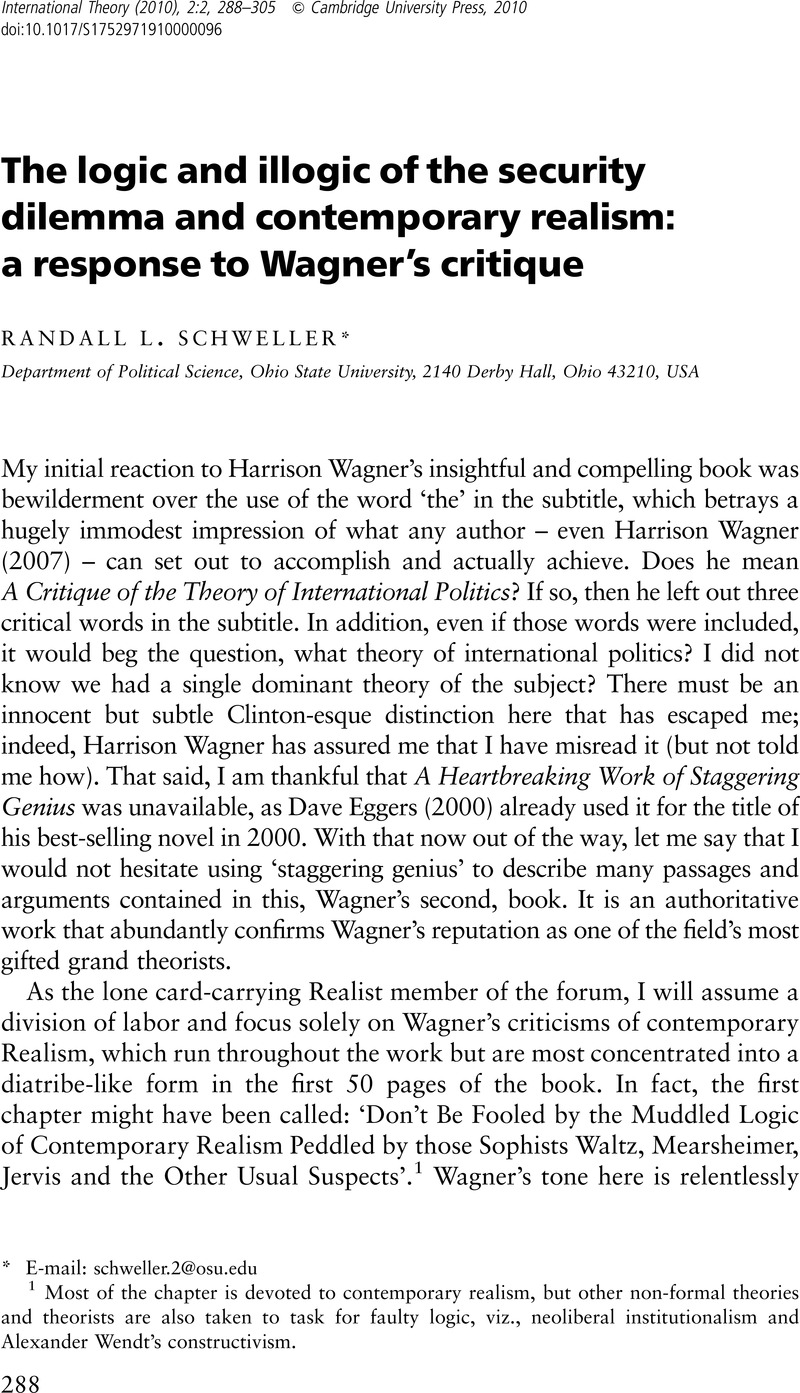Crossref Citations
This article has been cited by the following publications. This list is generated based on data provided by Crossref.
Wagner, R. Harrison
2010.
War and the State: reply to comments.
International Theory,
Vol. 2,
Issue. 2,
p.
343.
Kim, Inwook
and
Park, Soul
2019.
Deterrence under nuclear asymmetry: THAAD and the prospects for missile defense on the Korean peninsula.
Contemporary Security Policy,
Vol. 40,
Issue. 2,
p.
165.
Johnston, Alastair Iain
2024.
Racism and security dilemmas.
International Politics,
Vol. 61,
Issue. 2,
p.
451.
Goziyev, Ravshan
2024.
International Relations Dynamics in the 21st Century.
p.
349.
Correa Merchan, Sofia
2024.
La reclamación de Canadá por el Northwestern Passage: aspiraciones geopolíticas y dilemas de seguridad.
Revista Estrategia, Poder y Desarrollo,
Vol. 3,
Issue. 6,
p.
185.


